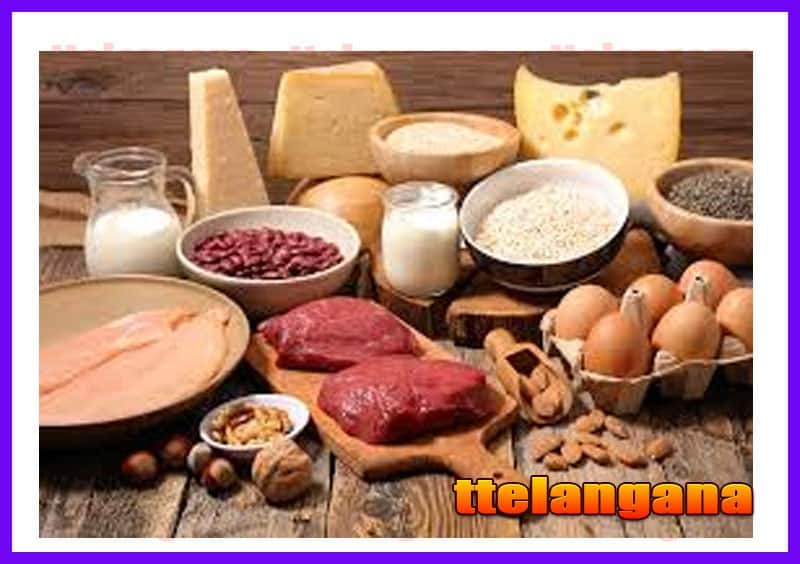Protein Foods Benefits Uses and Side Effects
Protein is an essential macronutrient that plays a crucial role in the growth, repair, and maintenance of tissues in the body. It is composed of amino acids, which are the building blocks of proteins. Protein is found in a variety of foods, both from animal and plant sources.
Common Protein Foods and Sources:
Animal Sources:
Meat: Beef, pork, lamb, poultry (chicken, turkey), game meat (venison, bison)
Fish and Seafood: Salmon, tuna, cod, shrimp, shellfish
Dairy Products: Milk, yogurt, cheese, cottage cheese
Eggs: Whole eggs, egg whites
Plant Sources:
Legumes: Lentils, chickpeas, black beans, kidney beans
Nuts and Seeds: Almonds, walnuts, peanuts, chia seeds, flaxseeds
Soy Products: Tofu, tempeh, edamame
Quinoa and Other Whole Grains: Quinoa, brown rice, oatmeal, whole wheat bread
Vegetables: Spinach, broccoli, Brussels sprouts
Protein Foods Benefits Uses and Side Effects
Benefits of Protein Foods:
Muscle Growth and Repair: Protein is vital for muscle growth and repair. When we engage in physical activity, especially resistance training or weightlifting, our muscles experience microscopic damage. Protein helps in repairing and rebuilding these muscles, promoting growth and strength.
Weight Management: Protein-rich foods can be beneficial for weight management. They are more satiating than carbohydrates and fats, which means they keep you feeling fuller for longer. Including protein in your meals can help control cravings and reduce overall calorie intake.
Metabolism and Energy Production: Protein plays a significant role in metabolic processes. It helps in the production of enzymes, hormones, and other molecules involved in metabolism. Additionally, protein can be broken down into glucose through a process called gluconeogenesis, providing energy when carbohydrate stores are low.
Immune Function: Many components of the immune system, such as antibodies and immune cells, are made up of proteins. Consuming adequate protein supports immune function and helps protect against infections and diseases.
Nutrient Absorption: Protein is involved in the transportation of essential nutrients across cell membranes. It helps carry vitamins, minerals, and other important substances throughout the body, ensuring proper absorption and utilization.
Bone Health: Protein is not only important for muscle health but also plays a role in maintaining strong and healthy bones. Collagen, a protein found in bones, provides structural support and helps prevent conditions like osteoporosis.
Wound Healing: Protein is crucial for wound healing and tissue repair. It provides the necessary amino acids to build new tissues, repair damaged cells, and promote faster healing.
Hormone Regulation: Several hormones in the body are made up of proteins, including insulin, which regulates blood sugar levels, and growth hormone, which is involved in growth and development. Consuming adequate protein helps maintain proper hormone balance.
Cognitive Function: Protein is involved in the synthesis of neurotransmitters, the chemical messengers that transmit signals in the brain. Adequate protein intake is important for optimal cognitive function, including memory, focus, and concentration.
Side Effects and Considerations:
Kidney Function: High protein intake, especially from animal sources, may put a strain on the kidneys. People with pre-existing kidney conditions should consult with a healthcare professional before significantly increasing protein consumption.
Digestive Issues: Some individuals may experience digestive discomfort, such as bloating or constipation when consuming large amounts of protein. Ensuring adequate fiber intake and staying hydrated can help alleviate these issues.
Allergies and Sensitivities: Certain protein-rich foods, such as eggs, milk, soy, and nuts, can cause allergies or sensitivities in some individuals. It’s important to be aware of any food allergies or intolerances and choose alternative protein sources accordingly.
High-Calorie Content: While protein is important for a balanced diet, some protein-rich foods may also be high in calories. It’s essential to consider portion sizes and overall calorie intake to maintain a healthy weight.
Processing and Additives: Processed protein foods, such as sausages or deli meats, may contain additives, preservatives, and high amounts of sodium. Opting for minimally processed or homemade protein sources is generally a healthier choice.
Individual Nutritional Needs: The optimal amount of protein varies depending on factors like age, sex, activity level, and overall health. Consulting with a registered dietitian or healthcare professional can help determine the right protein intake for your specific needs.
Tags: protein powder side effects, protein powder, side effects of whey protein, whey protein before and after, whey protein side effects and benefits, protein powder benefits and side effects, best protein powder, whey protein side effects, berberine benefits and side effects, whey protein, protein shake, best whey protein, health benefits of protein powder and possible side effects, protein powder benefits, whey protein benefits, protein, how protein affects the body
